Did you know that some personal finance apps can boost your savings without you even realizing it? It's no wonder they're becoming as essential as having a bank account. These digital marvels are transforming how Mexicans manage their money in 2025, and you won't believe the impact they’re having!
As inflation fluctuates and economic tides shift, understanding where every peso goes is more vital than ever. This isn't just about budgeting—it's about financial empowerment and breaking traditional molds in personal finance. But which apps are leading the charge, and what secrets are they hiding?
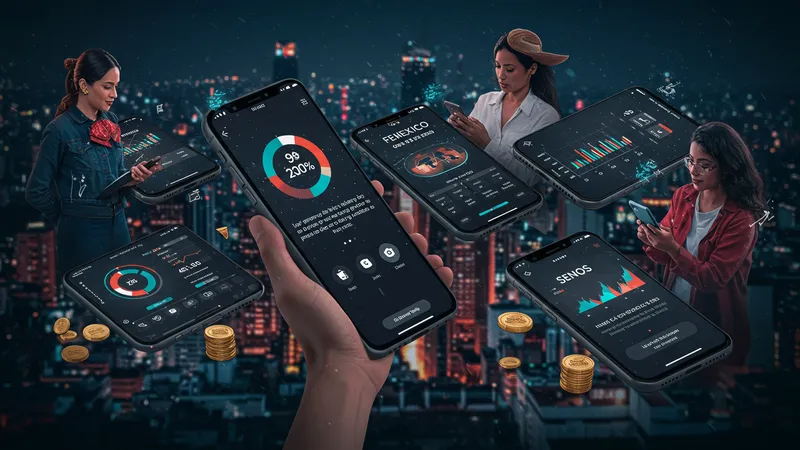
Many assume that all finance apps do the same thing: budget, track, and remind. But here's the surprising truth: some apps are tapping into AI to predict market trends, guiding users with unprecedented foresight. Imagine knowing when a currency dip could affect your savings weeks before it happens. But that’s not even the wildest part…
These apps aren't just tracking—they’re evolving. Leading finance apps in 2025 are integrating with health data, ensuring your financial health matches your physical health. It's an era of synergy where personal and financial well-being go hand in hand. What’s more, this integration could potentially save you thousands annually in healthcare costs. But the revolution doesn't stop there…
We’ve uncovered some groundbreaking shifts that are breaking stereotypes and rewriting the rules of personal finance in Mexico. What happens next shocked even the experts…
In 2025, personal finance isn’t just about hindsight; it's about foresight. This is where predictive AI comes into play, anticipating financial trends before they hit. With predictive algorithms, apps can now suggest the best investment opportunities tailored to an individual’s spending habits and risk appetite. These tools don't just save money; they make your money work smarter.

The AI revolution isn't merely a luxury but a necessity. Amidst fluctuating markets, having a proactive strategy is no longer optional for many Mexicans. Apps that can foresee budgetary impacts a month in advance are not just helpful—they're pivotal. This foresight helps users stay ahead of the game, optimizing their financial paths as circumstances change.
Consumers used to be passive players in the financial world. Now, thanks to predictive AI, they can actively steer their fortunes. By identifying trends and pitfalls in real-time, users can prevent unnecessary expenses, strategically plan investments, and navigate economic shifts with confidence. This is a transformative empowerment that hasn't been seen before.
While this sounds pioneering, the next wave is even more astonishing: apps so advanced they don't just predict market trends but understand personal behavioral economics. Imagine an app that not only learns your financial patterns but also adapts and changes with your life events. The future of personal finance isn't just here; it’s evolving, and it might just change everything you know about money management.
Imagine a future where financial apps not only track your spending but also monitor your physical health. This isn't fantasy; it's 2025's reality. Apps are breaking ground, syncing with your health data to ensure that financial decisions don’t just benefit your wallet but your well-being too. The implications are revolutionary.
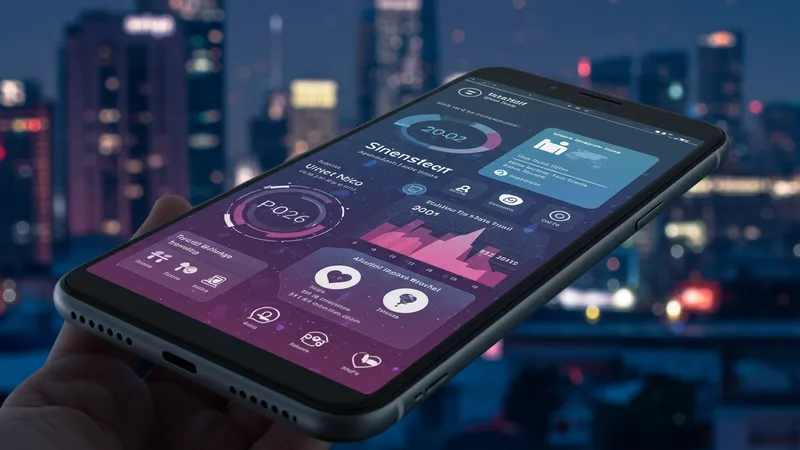
This synergy means that overspending patterns can suggest stress triggers, advising users to take necessary wellness breaks. The apps can even predict potential health costs based on current lifestyle choices, offering savings plans accordingly. It’s a convergence of health and wealth, aiming for holistic prosperity.
The intertwining of these domains creates a new layer of consumer awareness. Users are becoming more conscious not just of financial trajectories but overall life choices. The ability to see potential health implications of financial behaviors creates a more profound understanding of personal sustainability.
The blend of health and finance data is more than just an optimization tool. It heralds a shift in the societal approach to well-being. By aligning economic activities with physical wellness, these apps are pioneering a movement towards comprehensive personal health, both fiscal and physical. But what if this is only the beginning? The potential for future integrations is immense.
Gone are the days where protecting your financial information meant merely creating a strong password. In 2025, personal finance apps are deploying cutting-edge security measures that push boundaries. Biometric authentication and AI-driven anomaly detection are now standard practices, ensuring unparalleled user safety.

This leap in security also caters to the growing concerns about data breaches. In a world where cyber threats are more sophisticated than ever, these apps embrace proactive defenses, often detecting suspicious activities before they can even pose a threat. It’s like having a personal security analyst watching over your finances 24/7.
Interestingly, enhanced security doesn’t just protect—it educates. Through real-time alerts, users are informed of security vulnerabilities, learning to curb risky behaviors. This helps cultivate a generation of financially-savvy individuals who prioritize security without compromising convenience.
Yet, even as apps become fortresses of digital safety, there's an emerging narrative of shifting threats. As security evolves, so do the tactics of cybercriminals. Innovators are being challenged to stay ahead, constantly evolving apps to keep users protected, highlighting that in the digital race of finance, the journey is never truly complete.
With access to sophisticated finance apps, Mexicans are experiencing a societal shift in financial literacy. These tools do more than crunch numbers; they educate, equipping users with essential knowledge to make more informed decisions about their money. It’s like having a financial advisor in your pocket.
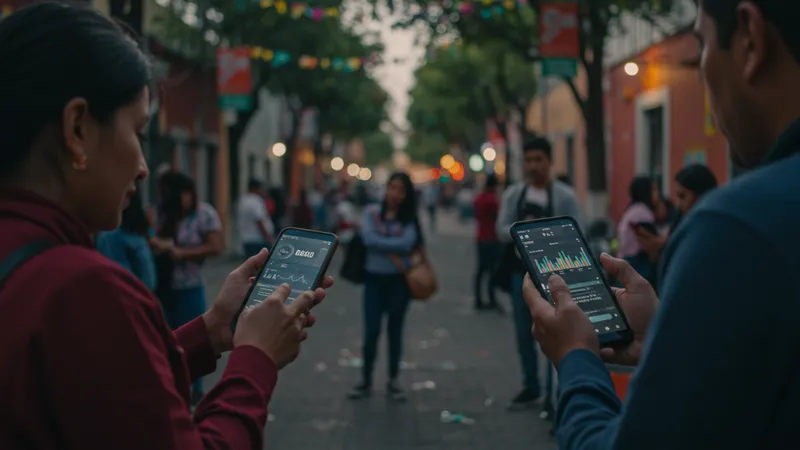
This surge in financial education is changing the dynamics within communities. People are sharing insights, creating networks of informed individuals, united by common goals of financial growth and literacy. It's a collective evolution where education becomes empowerment.
One surprising trend is the role of finance apps in reducing economic disparity. By offering tools and insights that were once exclusive to wealthy individuals, these apps are leveling the playing field, enabling broader access to opportunities that spur economic growth.
Yet, the most profound impact is cultural: discussions around money management are emerging in households, breaking longtime taboos and fostering openness. As financial literacy becomes a shared pursuit, it's redefining relationships with money and encouraging a forward-thinking, financially-resilient generation.
Among the standout features of leading finance apps is their ability to act as personal financial coaches. Tailored experiences have become the norm, where the app evolves with its user's life stages, goals, and habits. It’s personalization like never before.
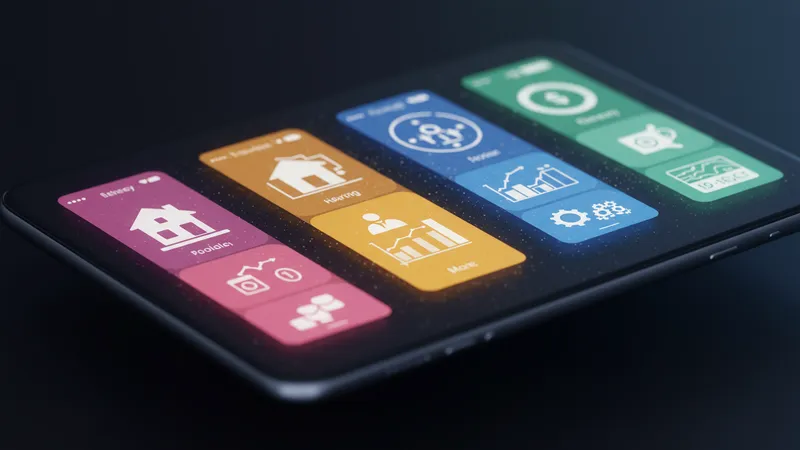
These apps are not only about tracking expenses but offering personalized insights that transform spending patterns into smarter financial practices. They adapt and provide curated content, helping users navigate pivotal life events—be it buying a house, saving for education, or planning retirement.
The powerful algorithms behind these tools ensure that users receive specific guidance that resonates with their unique financial landscape. This level of customization didn’t just arise from technological advancement but from an understanding of diverse user needs, fostering a deeply personalized financial journey.
However, the true genius lies in predictive coaching—where apps not only suggest adjustments but foresee potential financial challenges and proactively guide users. This transformative approach to personal finance might be just the beginning of an entirely new coaching paradigm, redefining the very essence of financial independence.
A major narrative in 2025’s finance app landscape is the breakdown of financial stereotypes. These apps are championing financial inclusion, reaching sectors of Mexican society previously overlooked. This isn’t just about technology; it’s a movement towards financial democracy.

From unbanked populations gaining access to banking facilities to individuals in remote areas using smartphones for financial management, these apps are providing unheard-of accessibility. It’s tearing down barriers and creating a culture where everyone has a seat at the financial table.
The apps' multilingual interfaces and educational resources cater to diverse demographics, ensuring that language and cultural barriers are no longer obstacles. It’s an inclusive strategy that acknowledges diversity and adapts to it, setting a new standard in techno-social responsibility.
Yet, there’s more to this story. These apps aren’t just inclusive—they’re transformative, fostering a profound societal shift where access to financial tools empowers whole communities. The groundwork being laid today could be the bedrock of an entirely equitable financial future, changing lives more than we ever imagined.
Today's finance apps aren't designed for one-size-fits-all solutions; they willingly adapt to the user's ever-changing lifestyle and financial objectives. As users transition through life phases, these apps ensure that financial plans adjust accordingly, offering dynamic recalibration.
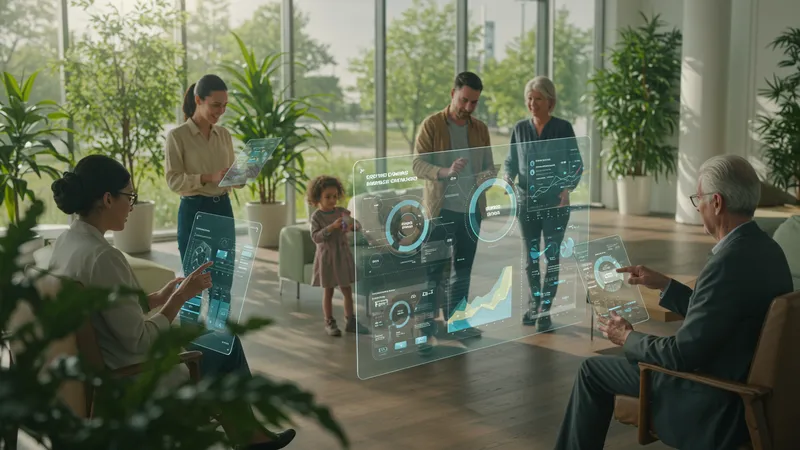
Young professionals, families, and retirees alike benefit from tailor-made strategies that consider current and potential future needs. From account linking that simplifies transaction histories to predictive alerts on spending trends, users maintain control without being enslaved to their technology.
The genuine dynamic nature of these tools lies in their ability to anticipate life events. Whether it’s a job shift, family expansion, or unforeseen economic downturns, these apps are designed to provide seamless transitions ensuring financial stability through life's unpredictability.
However, beyond personal usage, these apps encourage social change by highlighting collective patterns that inform economic policies. The dual capability of person-specific advice and macro-level insights makes these apps indispensable in modern financial planning, poised to redefine personal finance as a customized journey.
In 2025, rewards and cashback programs are no longer just enticing bonuses but integrated financial tools that make a significant difference. Today's apps leverage data to provide users with tailored savings opportunities, making purchasing decisions more strategic and beneficial.

Users benefit from personalized rewards systems driving them to make financially sound decisions. These cashback features aren’t mere incentives but play critical roles in monthly budgeting, often forming the backbone of financial optimization strategies.
The technology behind these systems continually evolves, learning from user behavior to optimize rewards distribution. This level of interaction provides more than just savings; it creates a symbiotic relationship between spending and financial health, contributing to a sustainable financial life.
Yet, even with such advancements, there's always room for evolution. The potential for future rewards systems—where AI-driven insights offer even greater personalization—is vast. As these systems combine with broader financial management, they are poised to fundamentally alter how financial well-being is conceptualized and achieved. Could we be standing on the threshold of a new economic philosophy?
At the heart of every leading finance app in 2025 is the usage of big data in crafting a path to financial emancipation. It’s no longer about numbers but the stories they tell. Apps use analytics to leverage these stories, sculpting them into actionable insights that foster financial independence.
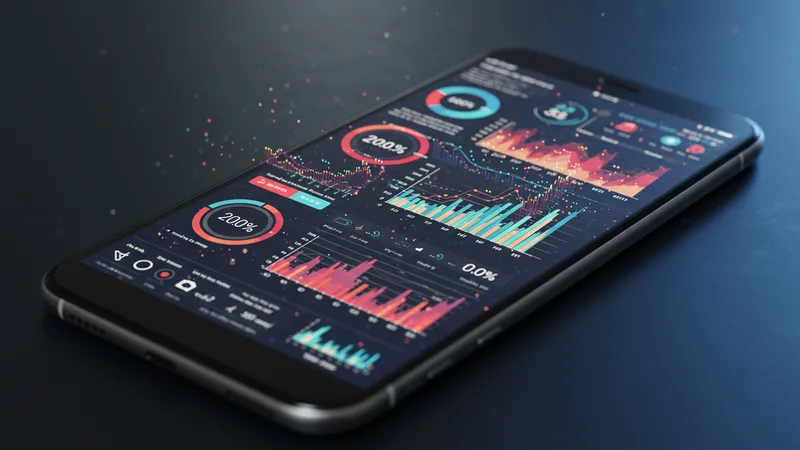
The availability of such comprehensive analytical data once out of reach now equips everyday people with the knowledge to steer their finances towards a better future. Piecing together past spending with future predictions, users can make smarter, data-driven decisions.
This democratization of data analytics is flipping the financial advisory industry on its head. Individuals who formerly relied on professionals for financial forecasting and advice are discovering the empowerment of interpreting these analytics themselves, all facilitated by user-friendly app interfaces.
The questions that linger are the possibilities of data-driven transformation in personal finance unexplored. As these apps continue to evolve, could we be nearing an era where data not only informs but transforms societal attitudes towards personal finance? There’s an array of revelations waiting in the wings.
Personal finance apps are now measured by the experiences they craft. As technology intertwines with everyday life in 2025, user experiences have taken a front seat, reshaping how individuals interact with financial tools. This interaction isn’t just functional—it's transformational.
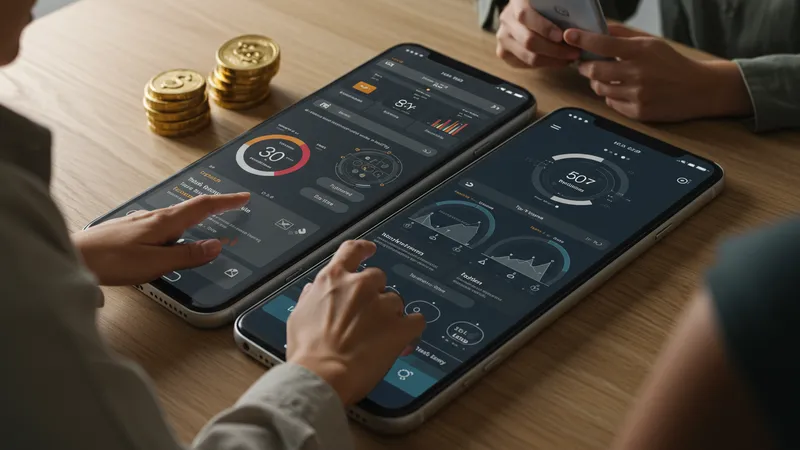
The apps excel by providing intuitive interfaces that cater to seasoned users and financial novices alike. They anticipate needs, offering guidance that feels less technological and more personal. These experiences are nurturing a more profound connection between users and their financial journeys.
Strategically designed interfaces ensure seamless navigation, eliminating barriers and streamlining experiences. The power lies in simplicity, where users can effortlessly comprehend complex information, thus enhancing their decision-making capabilities.
Looking beyond the interface, the user-centric design marks only a milestone in the tech evolution of finance. These thoughtful interactions might signify the dawn of a more accommodating financial ecosystem, where technology not only serves but elevates human interaction, driving deeper engagement and inspiring financial growth.
In a country deeply rooted in community, finance apps are fostering environments where shared success becomes a reality. Users aren’t just managing money; they’re engaging in collective prosperity. This sense of community is weaving a rich tapestry of shared financial goals and aspirations.

Many apps offer platforms where users can create group budgets, share insights, or even form investment clusters, reimagining financial cooperation. This communal approach not only increases commitment to personal financial objectives but creates shared accountability, making financial independence a collective journey.
This shared success model inherently promotes financial awareness and cooperation. By engaging with others, users are exposed to a diverse range of financial strategies and perspectives, enriching their learning experiences and extending opportunities for collective gain.
The possibilities for community-based financial progress are endless. Could these financial communities lead to a broader socio-economic movement where modern financial decisions foster collective wealth? As we move forward, the potential for social innovation is boundless.
The personal finance app revolution in 2025 brings forth a plethora of next-generation features that you'll find hard to ignore. These aren't just upgrades; they're game-changers. Imagine customizable alerts that adjust to your specific lifestyle changes, automating every aspect of financial management.
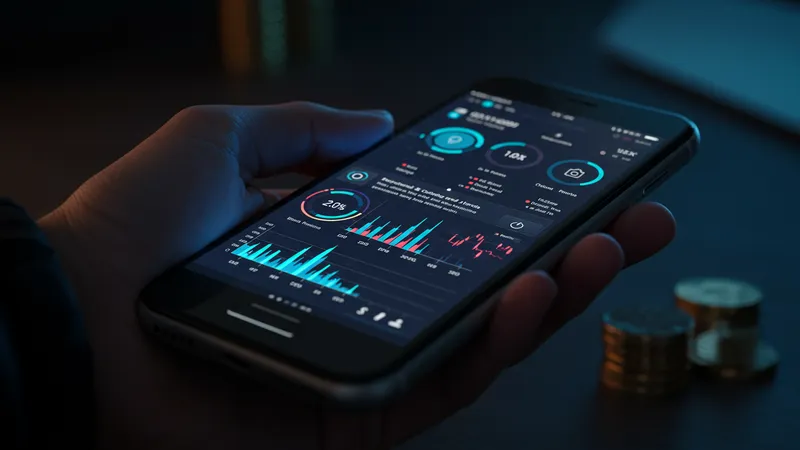
While these tools have already simplified expense tracking, the latest updates incorporate broader functionalities like dynamic forecasting and behavioral recognition. These features learn from your financial actions to help guide future spending, offering a personal touch that was previously unimaginable.
A notable enhancement is voice-control capabilities that render financial management a hands-free affair. Users can now control their finances through simple commands, making these tools ever more integrated into our hectic lives. Convenience and efficiency have never blended so seamlessly.
Undoubtedly, these next-gen tools feel like a peek into the future, yet they reside in the now, constantly upgrading our potentials in financial stewardship. The transformation they bring could inspire an evolution not just in personal finance but in how we view and approach technological integration in daily routines.
As we delve deeper into 2025, the continual evolution of finance apps is a testament to the power of innovation. With each user gaining access to an unprecedented suite of tools, the very framework of personal finance is being revolutionized. It's not just about current trends but the potential for future advancement—a possibility that leaves the door open for breakthroughs we haven’t yet imagined. As more people discover these powerful tools, the call to action is simple: share these insights, bookmark the possibilities, and embark on your own journey to financial empowerment. The future isn't just bright—it's electric with promise and opportunity.